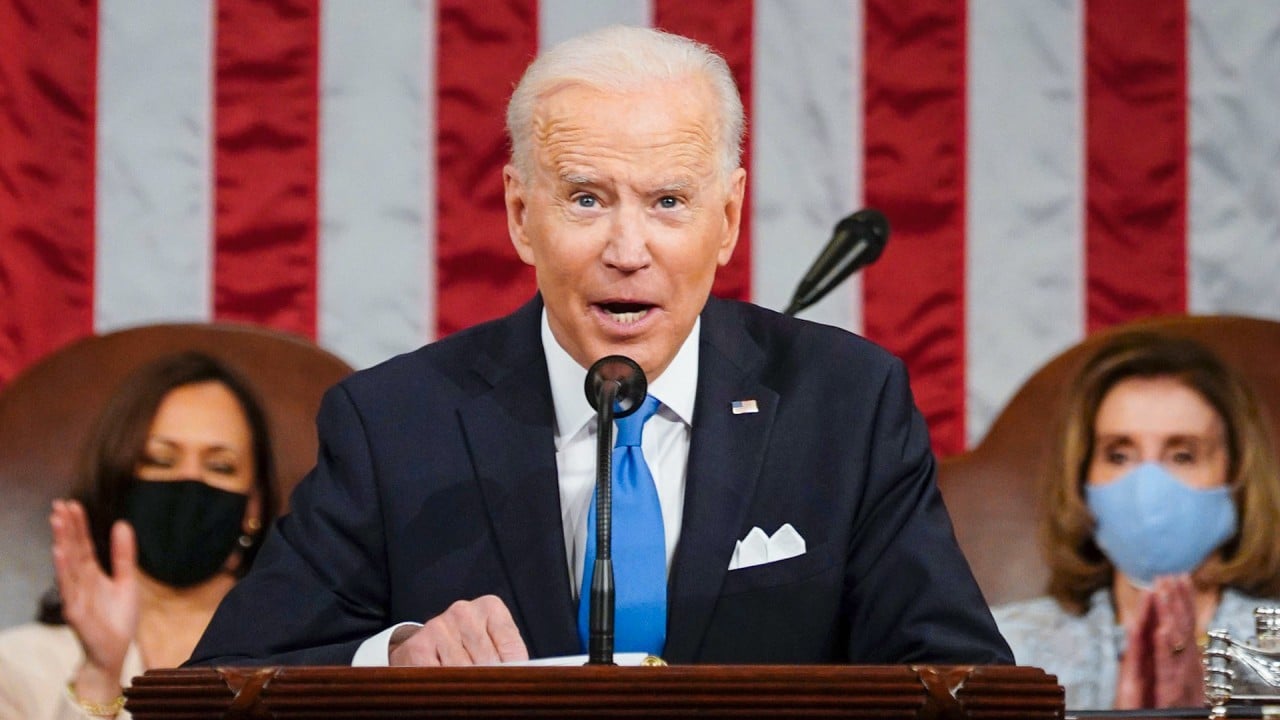
US Senate poised to vote on legislation countering China on multiple fronts
- The US Innovation and Competition Act would strengthen ties with Taiwan, steer billions to tech research and sanction more Chinese officials for Xinjiang
- The bill, which is expected to come up for a vote on Tuesday, is regarded by many observers as likely to pass
After months of procedural and political hurdles, the US Senate appears set to finally vote next week on sweeping, bipartisan legislation intended to counter a rising and more assertive China.
The bill, which has turned into something of an omnibus for senators hoping to pass their varied priorities related to China, ballooned to more than 2,000 pages in recent weeks as it approached the final stages of the Senate’s complex and winding bill-making process.
It was poised for a vote last week but was delayed when a handful of Republicans temporarily stopped it, arguing that they needed more time to review all its sections.

Current and former Senate aides closely tracking the legislation say it is expected to come to a vote on Tuesday. They say it is expected to pass the chamber, but the ultimate outcome is still unknown while behind-the-scenes negotiations continue over what the final bill will look like.
The Senate is marching ahead with this major piece of legislation amid otherwise bitter polarisation, when the two parties agree on little these days, even on whether to investigate the January 6 attack on the Capitol.
US Senate vote on China legislation is delayed by a group of Republicans
“Things as big and complicated as this rarely move so quickly,” said Eric Sayers, a visiting fellow at the American Enterprise Institute think tank in Washington.
“This is more evidence of the way China is bringing all sides together.”
The legislation draws together a group of expansive China-related bills. In February, Chuck Schumer of New York, the Senate Democratic leader, asked numerous Senate committees to draft legislation of their own; after each individual bill passed out of committee by overwhelming margins, Schumer combined them into the new legislation.

03:53
China ‘closing in fast’, says US President Joe Biden in first address to Congress
The Endless Frontier Act focuses on US technological innovation. Co-sponsored by Schumer and Todd Young, an Indiana Republican, it earmarks more than US$80 billion over five years for the National Science Foundation, and would also start a new high-level office there to oversee the development of technologies, including artificial intelligence, semiconductors, quantum computing and biotechnology.
The Strategic Competition Act, led by Bob Menendez of New Jersey, and James Risch of Idaho, the top Democrat and Republican on the Foreign Relations Committee, would create a working group with the legislatures of other nations in the Quad – Japan, Australia and India.
It would also crack down on Chinese government money flowing to US universities, and create a new high-level State Department position to monitor and counter Chinese influence in international organisations.
Washington intensifies pressure on Beijing in proposed policy of ‘strategic competition’
The legislation also includes US$52 billion to support the American semiconductor industry, building on separate legislation passed in the national defence bill last year.
And it includes a bipartisan amendment called the Meeting the China Challenge Act of 2021, which would require the US to impose sanctions on anyone in China engaging in intellectual property theft or cyberattacks against the US.
The latest version of the Senate bill deals with many topics considered highly sensitive by Beijing.

Beijing has repeatedly denied the allegations of human rights abuses, and insists that the camps are vocational training facilities.
The bill also calls for stronger US ties with Taiwan, including a policy that the US “strenuously oppose any action by the People’s Republic of China to use force to change the status quo of Taiwan”.
China claims the self-governed island of Taiwan is a wayward province and has not ruled out the use of force to reunify it with the mainland. US policy toward Taiwan is historically guided by “strategic ambiguity”, in which it is unclear to what extent the US would intervene if Taiwan was attacked.
If the legislation passes the Senate next week, its final form will still not be clear for some time.
China seeks to expand belt and road to Afghanistan as US troops leave
The House of Representatives has already begun working on its own China legislation, called the EAGLE Act, and an early draft introduced by Representative Gregory Meeks, Democrat of New York and chairman of the House Foreign Affairs Committee, shows some deviations from the Senate bill.
On Taiwan, for example, the Meeks bill does not call for the US to “strenuously oppose” an attack by Beijing, using different language instead.

00:51
Chinese military activity around Taiwan ‘potentially destabilising’, White House says
The House legislation also does not address a diplomatic boycott of the 2022 Beijing Winter Olympics, a policy that House speaker Nancy Pelosi said last month she supported. (Neither the House or Senate bills would block American athletes from competing in the games.)
Representative Steve Chabot of Ohio, the top Republican on the House foreign affairs committee’s Asia subcommittee, said, “We need to come together in a bipartisan manner to respond with tough legislation that holds the CCP accountable for its aggression toward its neighbours and its abuses at home”.
Meeks’ office did not respond to requests for comment.
Eventually, the House and Senate will have to work out their differences and send a final version to President Biden’s desk to be signed into law. Biden’s approval is all but certain. China is the rare policy area in which his administration has kept his predecessor’s policies largely intact.
While the bill winds its way through Congress, the Chinese government has taken notice, and – unusually, analysts say – has already spoken out multiple times against the bill’s early drafts.
In April, Chinese foreign ministry spokesman Wang Wenbin called on Congress to “stop proceeding” with one earlier version of the bill.
Additional reporting by Robert Delaney

